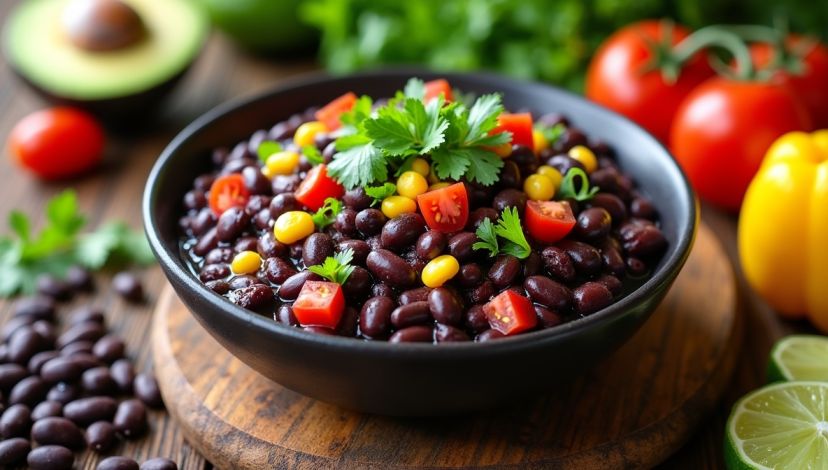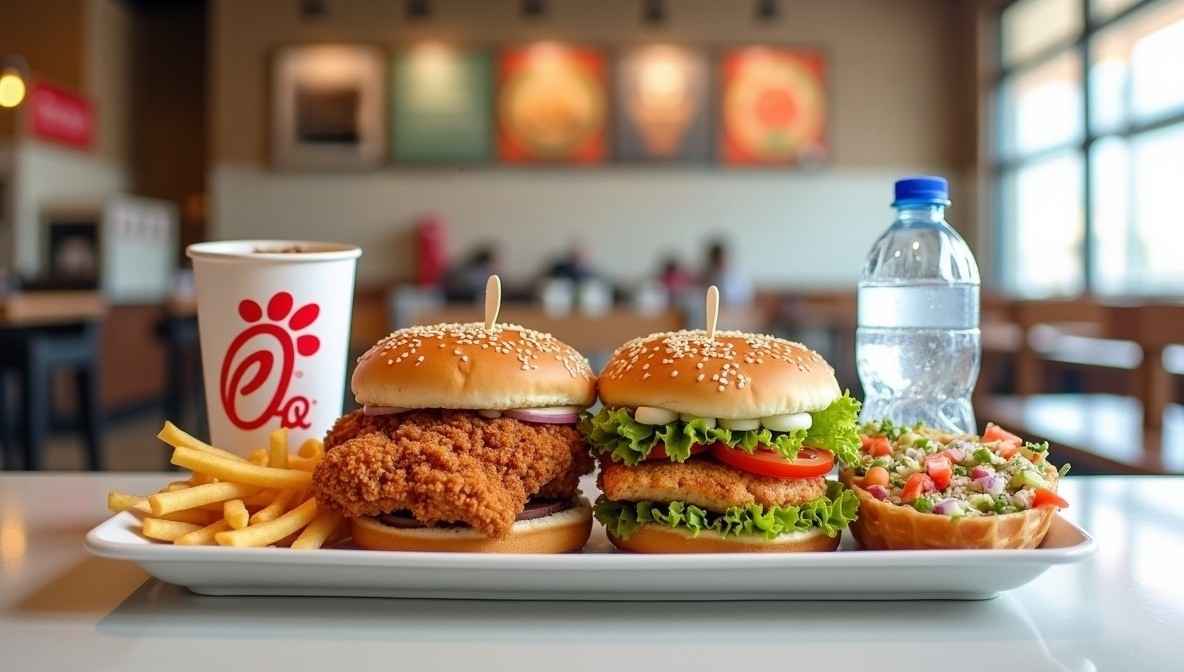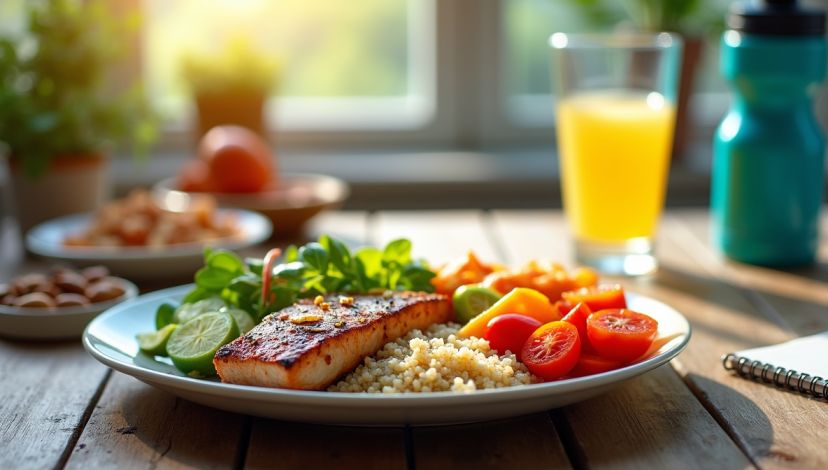Black Beans Nutrition: Benefits, Facts & Healthy Tips

Black bean is another legume that is wealthy in nutrients and that offers immense health benefits. Their use is popular in different cuisines of the world, particularly in the Latin American food. Black beans nutrition highlights their role as portentous sources of protein, fiber, vitamins, and minerals and are thus healthy ingredients to any diet. They uniquely contain a combination of nutrients, which have beneficial effects in the heart, weight loss, blood sugar, and bone health.
Table of Contents
- What Is The Nutrition Content Of Black Beans?
- What Are the Weight Loss and Blood Sugar Supporting Properties of the Black Beans?
- What Are The Main Health Equalities Of Consuming Black Beans?
- What Is The Way Of preparing and feeding Black Beans?
- What Are The Potential Negatives /Facts To Eating Black Beans?
- Conclusion
- FAQ’s
This blog post looks at the nutritional profile of black beans, their nutritional value, black bean recipe, and frequently asked questions about black beans.
Key Points:
- Black beans contain a lot of protein and fiber.
- They assist in regulating blood sugar and improve the heart condition.
- Black beans contain minerals that are vital to the development of strong bones.
What Is The Nutrition Content Of Black Beans?
Black beans contain diversities of nutrients needed in the body to stay healthy. An average of cooked black beans (approximately 1 cup or 172 grams) has around 227 calories, 15 grams of protein, 1 gram of fat, and 41 grams of carbohydrates. They contain an ample amount of dietary fiber, particularly 15 grams per serving, and this is good to promote digestion and keep the stomach longer.
Besides macronutrients, black beans can contain large quantities of vitamins and minerals such as folate, iron, magnesium, phosphorus, potassium, and zinc. Its nutrients are essential in energy, immune, and healthy bones functions.
| Nutrient | Amount per 1 cup (172g) | % Daily Value* |
|---|---|---|
| Calories | 227 | 11% |
| Protein | 15 g | 30% |
| Fat | 1 g | 1% |
| Carbohydrates | 41 g | 14% |
| Fiber | 15 g | 60% |
| Folate | 256 mcg | 64% |
| Iron | 3.6 mg | 20% |
| Magnesium | 120 mg | 29% |
| Potassium | 611 mg | 13% |
Percent daily values are charged on a 2,000-calorie rations.
This nutrient composition hence, makes black beans a nutritional powerhouse of good health and nutrition.
What Are the Weight Loss and Blood Sugar Supporting Properties of the Black Beans?
Black beans are a healthy food to keep weight since it is protein protein-rich and high in fiber. Fiber also takes a long time to digest, thereby making you feel satisfied longer and therefore less likely to eat too much or snack. Protein additionally adds up to satiety and aids in preserving muscle mass in the weight loss process.
Also, black beans contain a low glycemic index, so they do not raise the levels of glycemic glucose in the body. This is of benefit in avoiding fluctuations in blood sugar levels, and thus are considered a good option when dealing with diabetes or insulin resistance. Research indicates that the combination of eating black beans along with high-carbohydrate foods such as rice may reduce the total blood glucose response, which enhances the regulation of glucose.
As well as black beans can be added to the food as a means to decrease levels of cholesterol, and the food is helpful to the heart and loss of weight loss. Their nutrient combination allows for equalizing energy consumption and maintaining a healthy metabolism.
Comparison between Black Beans and White Rice (per 1 cup cooked)
| Nutrient | Black Beans | White Rice |
|---|---|---|
| Calories | 227 | 205 |
| Protein | 15 g | 4.3 g |
| Fiber | 15 g | 0.6 g |
| Carbohydrates | 41 g | 45 g |
| Glycemic Index | Low | High |
This comparison underscores the argument that black beans are more useful in terms of providing energy and managing weights as opposed to having white rice alone.
What Are The Main Health Equalities Of Consuming Black Beans?
There are several health advantages of using the black beans as a part of the diet, which go beyond simple nutritive value:
- Heart Health: Their fiber and antioxidant level helps to lower bad cholesterol and decreases the risk of heart disease. Such ingredients as quercetin and saponins help to protect the heart by decreasing oxidative stress and inflammation.
- Bone Strength: Black beans are a source of calcium, magnesium, phosphorus, and zinc, which play an important role in advancing the strength of bones and joints. The minerals assist in the prevention of osteoporosis and the repair of the bones.
- Prevention of cancer: Black beans possess antioxidants which prevent cell damage thereby lessening the threats of some types of cancer. Limited studies indicate that they could assist in preventing tumor development.
- Gut Health: Black beans are a good source of fiber that supports the health of the digestive system by providing nutrients to the good bacteria in the gut and providing it by avoiding constipation.
- Eye Health: Antioxidants in black beans may help prevent age-related eye problems and macular degeneration, and cataracts.
These advantages make black beans an exceptional food to the long-term health and the prevention of diseases.
What Is The Way Of preparing and feeding Black Beans?
Black beans are obtainable in dried form or in canned form. Dried beans also need to be soaked 8-10 hours before cooking so that the cooking time can be less and the digestibility will be much better. In soaking, gaseous-causing compounds are also washed out, and the amount of minerals that will be retained is less.
In the case of canned beans, go with either low-sodium or no-salt-added varieties and rinse thoroughly to cut down on the amount of sodium content.
The following are simple ideas of enhancing your meals with black beans:
- Put onto tacos, burritos, or enchiladas to increase protein and fiber.
- Add to soups, chili soup, and stew to make them thick and healthier.
- Add to a grain bowl or salad as a meaty, plant protein.
- Places them in a smoothie or use them to create some black bean brownies.
- Fill bell peppers or prepare bean patties to have vegetarian dishes.
It is necessary to soak black beans correctly in order to increase nutritional absorption and decrease gastrointestinal discomfort.
Tip: Black beans canned should be washed well to reduce sodium content by a large margin.
What Are The Potential Negatives /Facts To Eating Black Beans?
Although black beans are quite healthy, they may cause gas or bloating on some people because of particular complex carbs and antinutrients like phytates. These compounds may cause interference with mineral absorption, and they can be reduced through soaking and prolonged cooking.
Black beans can be too much carbohydrate to eat by people on low-carb or ketogenic diets. Nevertheless, the advantages prevail these issues, especially to the majority of the people.
There also should be the mention of gradually introducing black beans to the diet so that the digestive system could adapt to it.
| Aspect | Benefit | Consideration |
|---|---|---|
| Fiber | Improves digestion and satiety | May cause gas if consumed rapidly |
| Protein | Supports muscle and metabolism | Not a complete protein alone |
| Carbohydrates | Provides energy | May be high for low-carb diets |
| Antinutrients | Some reduce mineral absorption | Reduced by soaking/cooking |
Knowledge of these factors assists you to experience black beans safely and efficiently.
Conclusion
The black beans are highly nutritious as they contain vitamins, minerals, fiber, and proteins. They are beneficial to heart health, weight control, blood sugar, bone strength, etc. It is simple and flexible to include black beans in your food, as well as in soups, salads, or main courses.
Properly soaking, cooking and black beans can allow you to get as many benefits as possible and as few digestive problems as possible. They are also a great vegetable-based protein, and your good diet should be considered by anybody, and particularly by vegetarians.
Consuming black beans on a regular basis can help add a lot to health and prevent disease.
FAQ’s
1. How much calories are in black beans?
Cooked black beans improve the calorie counts to around 227 calories in one cup.
2. Does black beans nutrition support weight loss?
Yes, they are high-fiber and protein-rich, which makes you feel better longer and stabilizes sugar in the blood.
3. Does black beans control blood sugar?
Yes, to prevent blood sugar rises, one may use black bean,s which also have a low glycemic index.
4. What is the method of preparing dried black beans preparation?
To render them more easily digestible, soak them 8-10 hours, well rinse, and thoroughly cook.
5. What are the side effects associated with black beans nutrition?
Gas or bloating may occur among some individuals, and this can be minimised through soaking and gradual addition.
Latest Posts
You Might Also Like

Chipotle Nutrition – Your go-to guide for calories, healthy choices, and balanced meals at Chipotle.
TOP NEWS
© Copyright 2026 Chipotle Nutrition. All rights reserved













No Comments